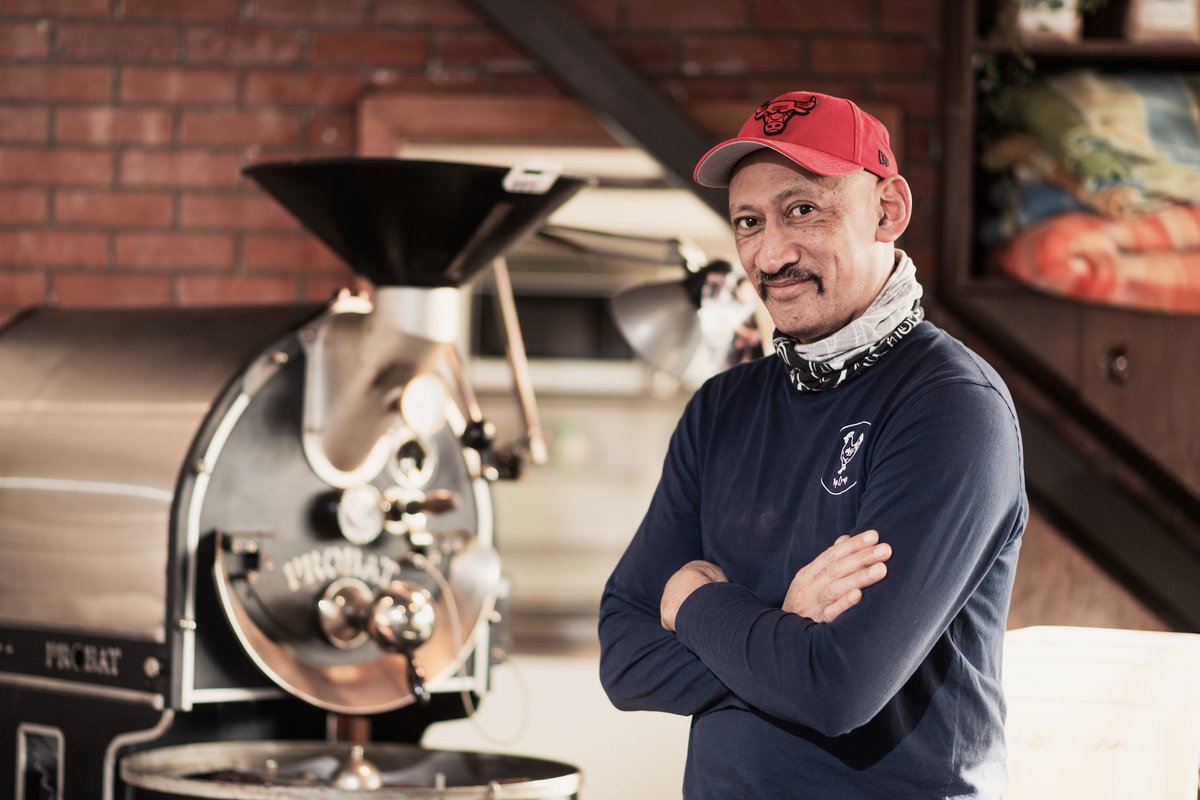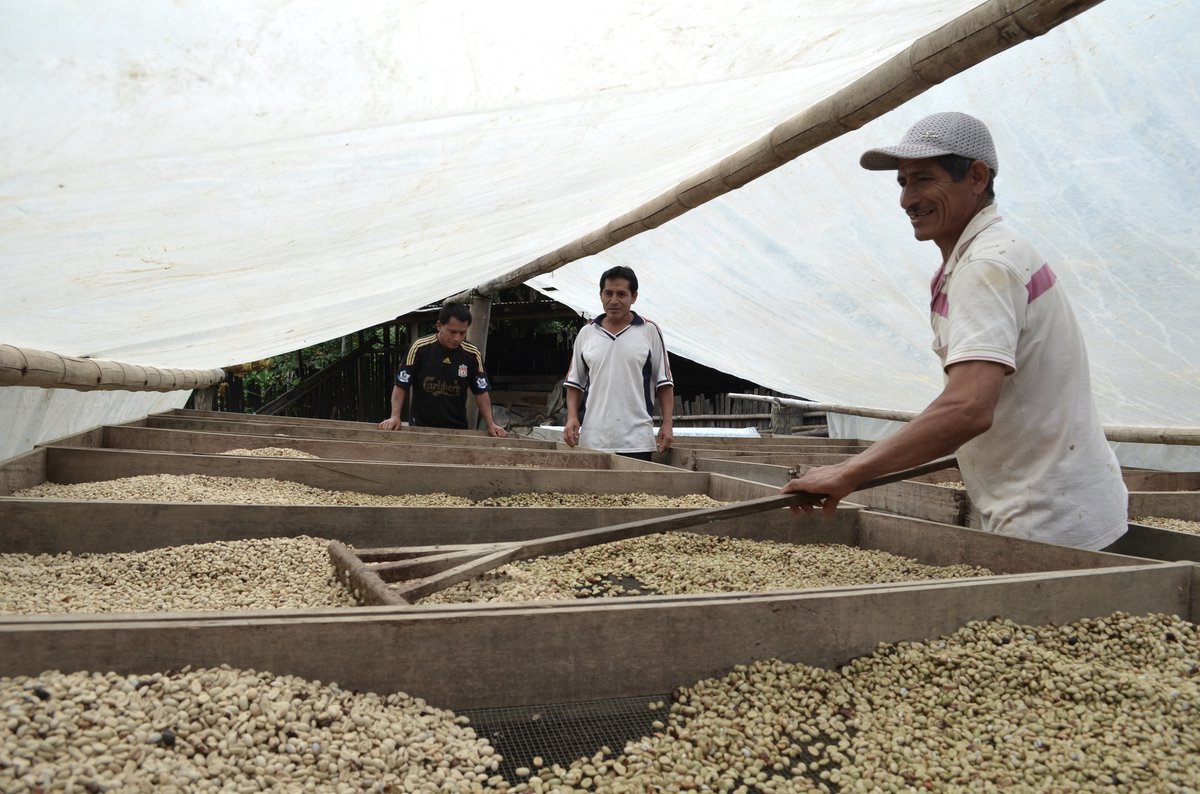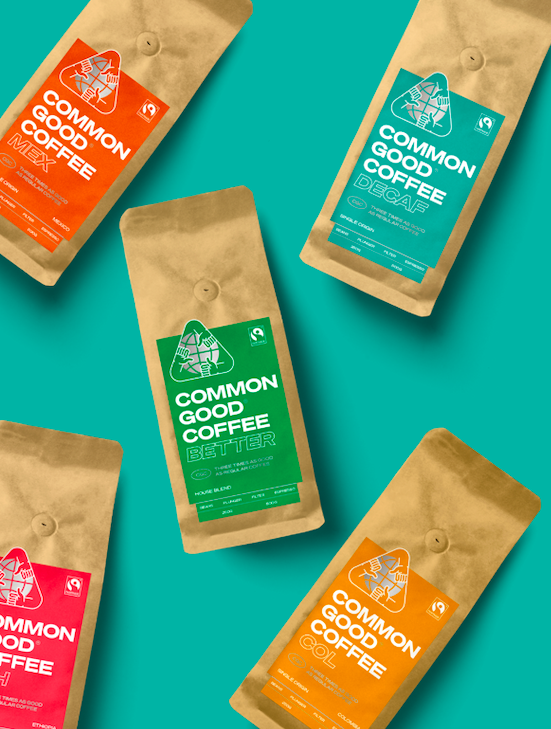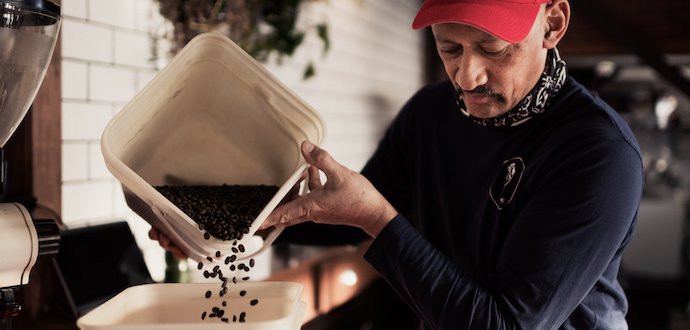They’re 100 percent organic and Fairtrade, but they’re also delicious and lovingly roasted in small batches. Chief roaster Vernon Omeri talks taste and how the team at Addington Coffee Co-op came up with its impeccable selection of coffees.
The coffee collective now known as Common Good isn’t new to the game, or to roasting. It actually began back in 2008, as the Addington Coffee Co-op in Christchurch.
Providing job opportunities to those behind the 8-ball and in need of a fresh start, the café and coffee roaster soon became known for its house blend, originally branded Jail Breaker. Roasted in small batches on site, the blend was popular for its approachable, well-balanced profile, developed by making and tasting literally thousands of cups of coffee, always with the goal of giving people what they want in mind.
People First

Far from being coffee snobs, the Addington co-op took a democratic approach that has allowed them to thrive in the years since, an ethos also reflected by their chief roaster, Vernon Omeri: “I learn what people want to try and I make it so that they love it and really enjoy the experience. And then I tweak that for what the broader populace enjoys, what clients enjoy.”
Mostly self-taught, Vernon used the Caffé L’affare book How to Make Really Good Coffee as his Bible when set up a philanthropic café overseas, his first foray into coffee. He gradually worked through making – and mastering – all of its espresso recipes and teaching staff how to make them before deepening his knowledge as a manager at Fuel Espresso, where he also honed his technique.
“It was big swaths of learning at the beginning and then consistency in what works really well,” he explains. “A lot of it was set for me in the history of the café. I came in to learn how to roast in 2013, and they already had an idea of what they wanted.”
Addington Coffee Co-op continues to be a community hub and on-site roaster and has since joined forces with Crave and Kind cafés in Auckland and the Common Ground Coffee pop-up in Whanganui, collectively known as Common Good Coffee. Vernon roasts coffee for all locations as well as nationwide delivery.
“I do the roasting for the Central North Island and South Island and the single origins for Crave. Because our capacity is huge we’ve got to cover a lot of bases, so we also have the option to outsource roasting a profile of the main blend.”
Beans Next

That main blend is Common Good’s aptly named Better Blend, which owes its heritage to Addington’s original house blend but boasts improved flavour and consistency.
From knowing what customers loved best at Addington, they developed “a three-bean system: a main base and then two origins that would complement that base. So that was their general idea of how we put that blend together. Over the years, I’ve gone on with that tradition but also tested each single origin.”
Vernon and the team went through a lot of Trade Aid coffee before settling on three they felt would cover the widest-possible base of coffee drinkers. “Basically, we would test it out on ourselves as to whether it tasted good – as a blend and as singles. Because we wanted to sell singles too, we needed each single to stand up by itself and also be good for different coffeemaking methods.”
For the coffee nerds out there, the three-bean Better Blend is a mix of the Colombian Caturra/Timor hybrid; the Mexican Typica, Bourbon, and Mundo Novo; and the Ethiopian Sidamo heirloom – all Arabica beans. In contrast to Robusta, Arabica is grown at much higher altitudes and known for its acidic flavour, which brings out the fruitier notes and is generally regarded as being of a higher quality.
Each coffee in the Better Blend is also available as a single origin, with the Colombian being the most popular, owing at least in part to the general Kiwi preference for a dark, bold morning cuppa. “The Colombian roast is sort of darkish and then the Mexican is medium. Ethiopian’s a little bit lighter. The idea is: dark, medium, and light.”
Common Good also carries a surprisingly good decaf, made from Icatu and Yellow Catuai from Honduras. “It’s the one I’m most proud of right now,” says Vernon, who often drinks it himself and says even he can’t tell it’s decaf. “It’s a milk-chocolatey medium-bodied coffee with caramel and malt notes. I really enjoy it.”
The Common Good Line-up

At the end of the day, a lot of love goes into making sure that Common Good’s beans brew an outstanding cup. With a bean profile to suit every taste, you’re assured a delicious experience.
Medium-light roast: Ethiopia Sidamo-4 heirloom grown at altitudes ranging from 1700 and 1900 metres. Bursting with blueberry fruit and delicate lemon zest. Bold and favoured for its bright acidity and depth. The Sidamo region grows some of the best-known coffees from Ethiopia, the birthplace of coffee. Ideal for: Filter, Espresso.
Medium roast: Mexico Chiapas (San Fernando) - Typica, Bourbon, and Mondo Novo grown at altitudes ranging from 900 to 1600m. Light, fresh, leafy aroma. Mild and smooth, with a good clean acidity and slightly smoky hazelnut or fruit flavours, it also has a light but creamy body. Ideal for Plunger, Filter, Espresso.
Medium-dark roast: Colombia (ANEI) – Colombiana and Typica grown at altitudes ranging from 1200m to 1800m. Faintly sweet toffee, malty fragrance. Soft, smooth acidity and slightly citric with a medium body and malty, sweet vanilla flavour and lingering aftertaste. Ideal for: Plunger, Filter, Espresso.
Medium-dark roast: Common Good’s Better Blend combines all three of our single origins in to give you a full-bodied cup every time. Savour chocolate, toffee, and hazelnut notes complemented by a lingering burst of vanilla and dark cocoa. Ideal for: Plunger, Filter, Espresso.
Medium roast: Common Good’s Decaf comes from Honduras Icatu and Yellow Catuai, decaffeinated by Descamex in Veracruz, Mexico. Certified organic, no artificial solvents, 100% water-processed, and charcoal-filtered for maximum coffee-soluble saturation and flavour. Caramel and malt aroma. Medium-bodied, sweet, mild milk-chocolate character. Ideal for Filter, Espresso.
